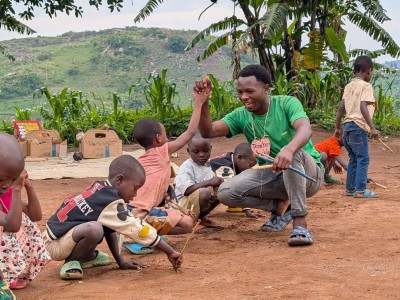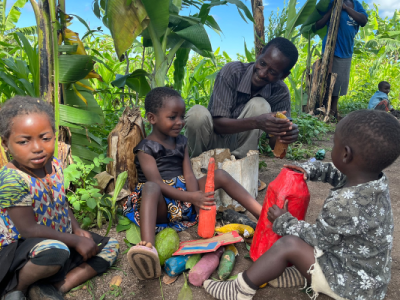We’ve been working with Congolese communities here over the last few years to promote the benefits of play based learning in our ‘cluster’ programme, and it was an absolute joy to witness this in action on the day I arrived.
A big group of children aged 3-6 years-old were being observed while playing creatively outside. They were building with cardboard shapes for well over an hour. This was unstructured play at its best, with children choosing what they wanted to do. They were building structures and when they fell down they were showing resilience and rebuilding them. I could see them refining their skills, building new roofs, developing their cognition about how things fit together. The caregivers joined the play sensitively, allowing children to lead the play and interacting to provoke thought.
We went on to observe an older class engaged in free-flow play within a smaller, sheltered classroom. Initially, the children demonstrated typical, rich play: some were using bottle tops and natural materials (like slate) to construct a shelter.
Crucially, within this environment, the observation provided compelling evidence that play-based learning naturally leads to more formal learning as we saw children voluntarily choose to engage in ‘academic’ tasks. One child was independently writing and solving their own mathematical sums, whilst another child was choosing specific letters, identifying them aloud, and then copying the letters onto a chalkboard.
We were really encouraged to see their direct transition across activities. It shows how the supportive, free-flow environment nurtures children's intrinsic motivation, and prepares them to actively participate in more formal learning.











